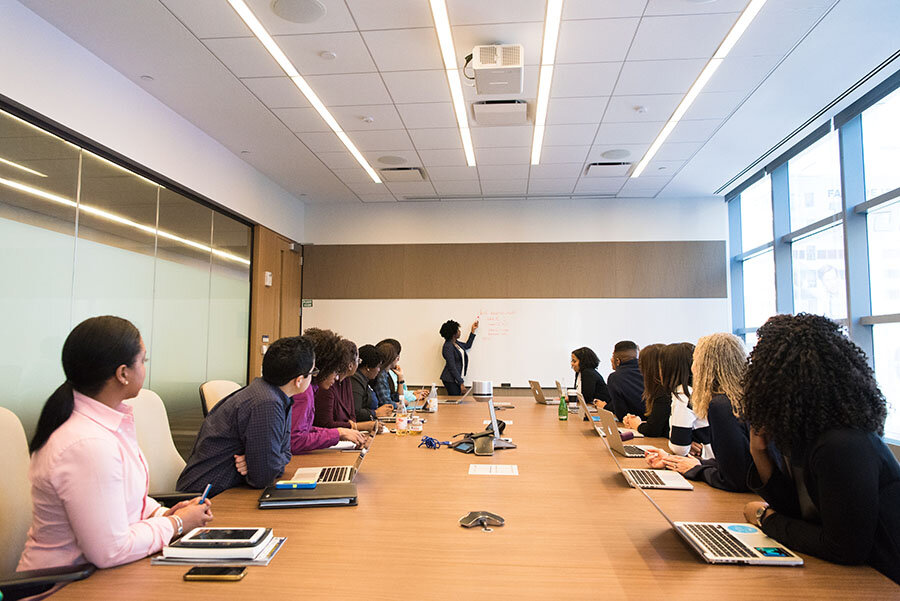Adaptability in Leadership: How To Be Adaptable
Adaptability in Leadership
Maybe it’s Time for Something New
Adaptability in leadership is a key distinction between thriving and struggling leaders. The business dictionary defines adaptability as “the ability of an entity or organism to alter itself or its responses to the changed circumstances or environment. Adaptability shows the ability to learn from experience, and improves the fitness of the learner as a competitor.” If the last 2 years have proven anything, it’s that the market is dynamic and the rapid influence of social media is changing the way business is done. Investigating current reality and paying attention to the moment opens the door to flexibility. Old leadership paradigms often interpret adaptability as wishy-washy and spineless. From a command and control perspective, it seems dangerous, unstable, or unreliable. However, in the new world order, it’s critical. Adaptability is necessary to thriving, to succeeding.
History proves that some of the greatest examples of paradigm blindness are founded in a lack of flexibility. Consider Thomas J. Watson, chairman of IBM in 1943 who was quoted saying “I think there is a world market for about five computers.” Obviously he ultimately shifted his views but in the moment, as one of the experts in the field, he was unable to see the future possibilities for his industry. Sometimes being an expert is exactly what gets in the way of being adaptable.
What does it take to be adaptable? What do you have to put aside or be willing to suspend?
Just Rearranging the Furniture?
Today’s leaders need to be ready to respond to the ever changing environment. Adaptability not only includes in how one responds to the marketplace but also how one relates to their own capacity to change and shift. Often when we think about change, we think about changing our strategy, changing the process or changing the people involved. It seems logical, reasonable and hey, sometimes it is what’s needed.
However, often changing the structure without addressing the way we relate to the structure amounts to ‘re-arranging the furniture on the Titanic”. We can shift the external but if the internal compass is fixed, we’ll eventually end up where we started. How often have you intended to create change in your organization and found yourself back where you started?
In an article from the Journal of Leadership and Organizational Studies in February 2008, by David J. O'Connell & Eileen McNeely & Douglas T Hall, the authors write: “Adaptability has been proposed by Hall (2002) as a career metacompetency, which along with personal identity forms the core of a protean career. It is, at its core, the capacity to change, including both the competence and the motivation to do so (Hall & Chandler, 2005).”
Adaptability is key to leadership training. It invites people to wonder: What motivates us to change? When we think about change, are we afraid, excited, nervous? What attitude supports an adaptable way of being? Real flexibility starts from the inside out.
This One is Juuust Right!
The story I always think about when it comes to adaptability in leadership is Goldilocks. She kept trying all the bowls of porridge, chairs and beds until she found the one that was ‘just right’. Of course the bears weren’t interested in adapting to her needs or preferences! The fairy tale does however remind us that we all like things a little differently. This is something that can be easy to forget, especially under stress.
Effective leaders know that you can’t relate to everyone the exact same way. While you can maintain standards and protocol, the way that you are with people needs to be flexible since everyone responds differently. How many times have you assumed that what motivates you also motivates everybody else? Or the way that you want to be managed is the way everyone else does?
We all naturally operate from our own perspective – it’s an addiction! Adaptability allows us to shift to meet the current reality of who we’re with at any moment. It also gives us the freedom to appreciate the differences that are present on our team. Adaptability is a way of being with others.
Next time you’re in a meeting, ask yourself: who am I with? What are their interests? How can I be with them to inspire, encourage and lead? Who can I be open up something new?
Got Resilience?
Interviewing and hiring can be one of the most challenging and frustrating aspects of organizational life. What do you look for? What questions to you ask? What tests do you give?
Maureen Moriarty of the Seattle PI writes: "Resilient" individuals are recognized for their ability to absorb change more effectively than their less resilient counterparts; they adapt to change positively, keeping their composure, without the change negatively affecting their emotional, mental or physical well-being -- or of those around them. Less resilient individuals tend to react with fight (emotional outbursts, passive/aggressive behavior or sabotaging the change effort) or flight ("I hit the job boards the day I heard the news.").
The University of Oklahoma’s human resource department suggests these questions in screening for adaptability in a candidate:
Tell me about a change that you have had to manage within your organization.
Describe a time when you have had to respond quickly to something within a changing environment.
Have you ever had to introduce a change into your department that was met with resistance? How did you handle the situation?
Have you ever worked hard on something and then had your priorities change mid-stream? How did you feel? What did you do?
How have you had to adapt your work style to fit the needs of others?
Tell me about a difficult adjustment that you have had to make in a job/position.
How often has your work been interrupted by unforeseen circumstances? What do you do when this happens?
Consider the value of flexibility in your department or organization. Maybe it’s time to be more adaptable in your hiring!
Expand Your Horizons
When I was working in Afghanistan recently, I noticed a new hire from another country complaining about the roads, the dust, the food, the driving… I thought to myself “where did you think you were coming to work?” Can you relate? It’s funny how addicted we are to ‘the way things are’. We like what we like and forget that other people are the same way! Cultural sensitivity requires adaptability. Working with multinational companies, outsourcing, global work teams – it all requires new levels of flexibility and understanding to be effective.
Adaptability is the #1 skill in working with diverse teams.
In a recent NY Times article “Distilling the Wisdom of CEOs” by Adam Bryant April 16, 2011, from his book “The Corner Office”, he writes “Specifically, in this culture I have to have people who not only can manage change but have an appetite for it,” said Mindy F. Grossman, the C.E.O. of HSN, the parent company of Home Shopping Network. “They tend to be more intellectually curious, so they don’t just have vertical climbs. I ask for those stories. I love hearing them and it gives me a real sense of the person.”
Maintaining and developing a diverse team is critical in the ever expanding global marketplace. Cultural diversity requires flexibility on everyone’s part. Consider how you relate to people or situations that are different from your expectations. Notice your attitude and immediate prejudices or preferences. What will it take for you to expand the range of your adaptability?
Adaptability in leadership can be the key to success. To find out about leadership training options in adaptability and more click here to book a call.
Are you needing to find your blind spots in leadership? Click this article on 4 ways to find them.
Jean-Marie is a master trainer, having delivered over 15,000 hours of training time. Her experience ranges from corporate marketing in the US and international markets to inter-cultural work in Canada, Holland, Africa and the Middle East. Jean founded Yellow Marker with the vision of bringing character and values to the foreground in the commercial sector. Prior to founding Yellow Marker, Jean was CEO of Culture ROI. She developed and co-authored training materials and resources for CultureROI, their corporate clients as well as several non-profit and humanitarian organizations. Click here to chat with Jean.





